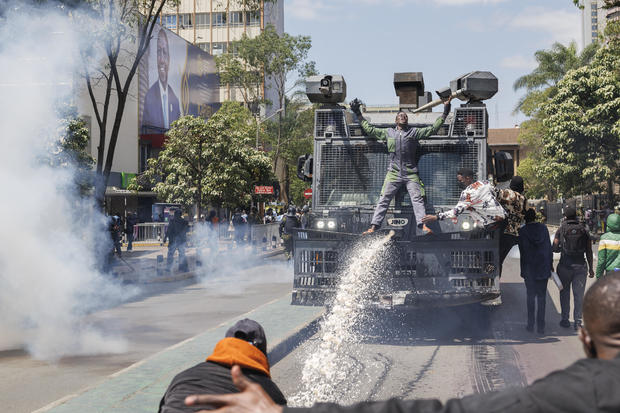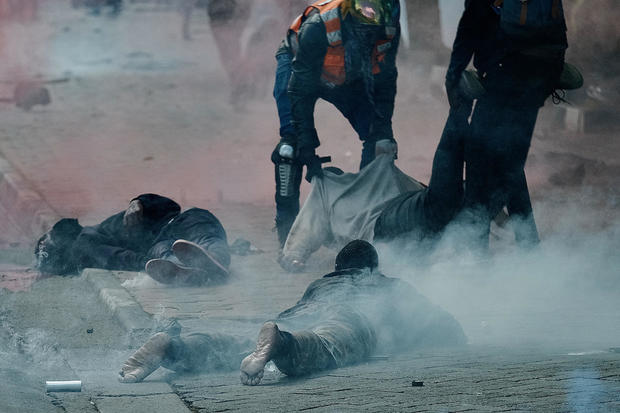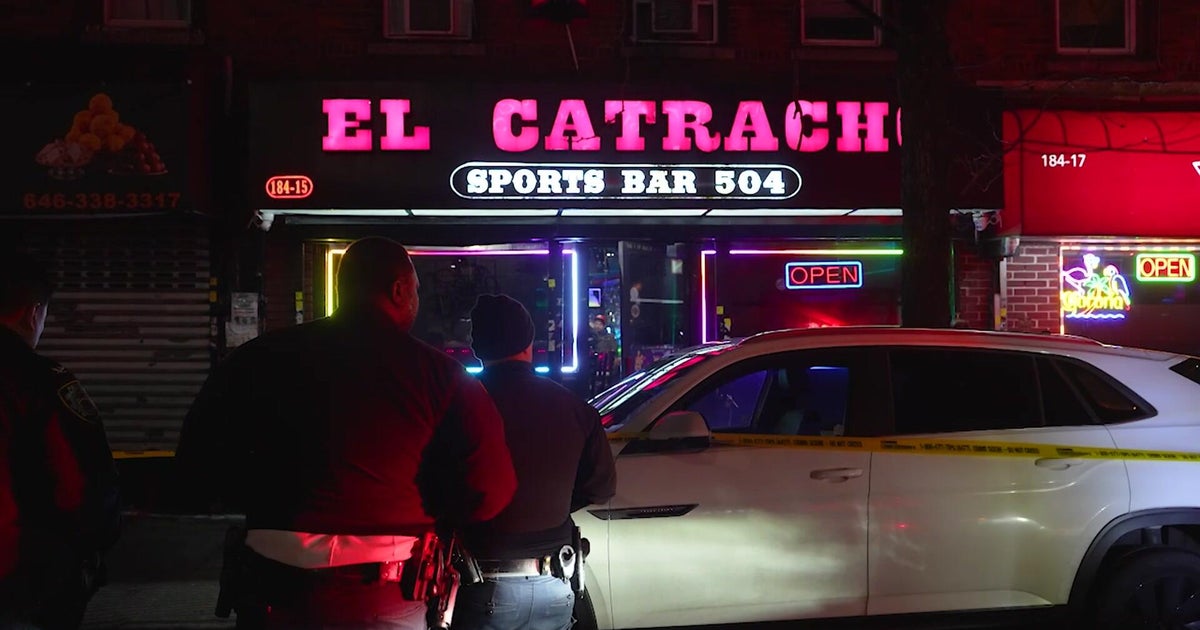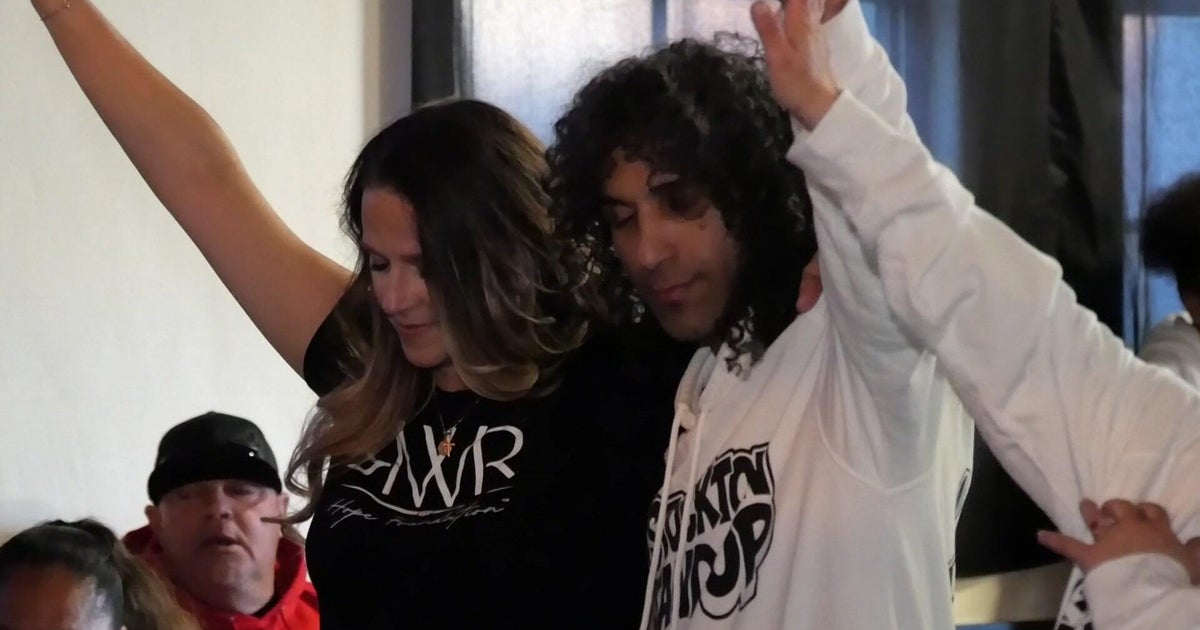Protests over Kenya tax hike proposal reportedly turn deadly in Nairobi
Johannesburg — There was chaos outside the Parliament of Kenya on Tuesday as police opened fire with live ammunition and tear gas at young protesters amid demonstrations against proposed tax hikes. Protesters overwhelmed police and managed to break into part of the parliament building in Nairobi and start a fire.
At least five people were shot and killed while treating the injured, according to a joint statement from Amnesty International and other organizations, which also said 31 people were wounded. The Reuters news agency quoted a medic earlier as saying at least 10 people were killed by gunfire.
EDITOR'S NOTE: This article includes images of injury and possible death that some readers may find disturbing.
Kenyatta National Hospital confirmed that it started receiving injured protesters from about noon local time, with at least 45 being admitted, but no confirmed fatalities. Social media feeds were flooded with images of protesters carrying wounded people away from the mayhem, and international photo agencies showed what appeared to be at least several dead bodies on the streets.
Inside the parliament, amid the chaos, lawmakers voted in favor of the government finance bill with the contentious tax increases. It will now go to Kenya's President William Ruto, who can either sign it into law or send it back to the legislators for changes.
Police had been warned that tens of thousands of protesters would take to the streets across the country Tuesday as anger over the proposed tax hikes reaches fever pitch. Parliament and at least one other government building in Nairobi were ringed with security in anticipation of the protests, but the forces deployed around the legislature were overwhelmed.
The U.S. embassy in Nairobi — and other embassies and high commissioners — said in a joint statement Tuesday they were "shocked" by the scenes outside parliament and "deeply concerned" with violence nationwide.
"We regret the tragic loss of life and injuries sustained including by the use of live fire," they said, calling for "restraint on all sides."
The protests have been led by younger Kenyans demanding that President William Ruto abandon the plan to raise taxes, which many say would be borne unfairly by younger generations. The protests were launched under under a banner of "7 Days of Rage," and the country is bracing for more days of upheaval ahead.
Two people were killed in similar demonstrations last week, including at least one man who is believed to have been shot by police.
Ruto said recently that he was proud of Kenya's young people for using their voices, and he said he wanted engage with them in a dialogue about the country's finances.
Rights advocacy group Amnesty International, meanwhile, said at least 12 prominent people involved in the protest movement had been abducted in the five days leading up to Tuesday's unrest, including on Monday night, in what it said appeared to be an effort to keep them away from the protests.
"It is unacceptable that individuals exercising their democratic rights to peaceful assembly and expression are being forcibly detained," said a statement from the Police Reforms Working Group in Kenya, referring to the same disappearances.
In May, President Biden hosted Ruto at the White House, an honor bestowed on an African leader for the first time during Mr. Biden's presidency. Mr. Biden followed up that honor on Monday by designating Kenya a "major non-NATO ally" of the U.S., making it the first sub-Saharan nation to carry the designation.
The finance bill approved by parliament on Tuesday aims to raise an additional $2.7 billion in federal taxes to lighten a very serious national debt load. Almost 40% of Kenya's total national revenue have gone to interest payments on its debt in recent years, and international finance organizations have been urging the government to get its finances under control.
The COVID pandemic and other issues saw some of the harsh measures delayed, and the government did abandon some of the proposals that had drawn ire, such as higher taxes on staples such as cooking oil, bread, and some financial transactions.






